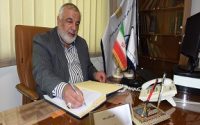( In the name of allah)
Discussion Topic: We will examine the relationship between Islamic philosophy and the ‘Pure Life’ [*Hayat-e Tayyebah*], along with the practical and executive strategies for these two components within the Fundamental Transformation Document of Education.
Research and Exposition: Dr. Mohammad Banaeian Sefid
This topic has two main parts:
1. The relationship between Islamic philosophy and the Pure Life.
2. The practical and executive strategies for these two components within the Fundamental Transformation Document of Education.
We will now address these two parts in a structured and concise manner.
1. The Relationship Between Islamic Philosophy and the Pure Life
The ‘Pure Life’ is a Qur’anic concept (Surah An-Nahl, Verse 97) referring to a pure, spiritual life accompanied by tranquility and divine pleasure. This life is achieved through faith and righteous deeds.
Islamic philosophy, relying on intellect and rational demonstration, explains the foundations of ontology, epistemology, anthropology, and theology. It can thus provide the theoretical basis for the ‘Pure Life.’
· From the perspective of Islamic philosophy, the human being is a creature endowed with a divine primordial nature (fitrah), intellect, and free will.
· The goal of life is to attain proximity to God and realize human perfection.
· True happiness depends on recognizing the truths of the universe and acting accordingly.
The Relationship Between the Two:
Islamic philosophy provides the rational foundation for explaining the goals, principles, and stages of the Pure Life.
For example:
· The theory of the ‘Primacy of Existence’ [*Asalat al-Wujud*] and the ‘Systematic Ambiguity of Existence’ [*Tashkik al-Wujud*] (by Mulla Sadra) demonstrates that levels of existential perfection are attainable for humans.
· The theories of ‘Bodily Resurrection’ [*Ma’ad al-Jismani*] and ‘Substantial Motion’ [*al-Harakat al-Jawhariyyah*] provide the philosophical underpinning for the importance of inner transformation and the otherworldly consequences of actions.
In other words, Islamic philosophy clarifies the ‘why’ and ‘how’ of moving towards the Pure Life through rational arguments.
2. Practical and Executive Strategies in the Fundamental Transformation Document of Education
The Fundamental Transformation Document has introduced the ‘Pure Life’ as the overarching and ultimate goal of education in Iran’s educational system.
Executive strategies for realizing this goal can be proposed in the following areas:
a) Educational and Curricular Content:
· Revising textbooks based on the principles of Islamic philosophy (e.g., in religious studies, literature, and humanities textbooks).
· Integrating rationality and spirituality in the curriculum; for instance, teaching philosophical thinking in simple language from the elementary level.
· Presenting practical models from the lives of Muslim scientists (such as Avicenna and Mulla Sadra) who were both philosophers and practitioners of Islamic values.
b) Educational Methods:
· Fostering critical thinking and reasoning skills (beyond mere memorization) based on the principles of logic and Islamic philosophy.
· Utilizing ‘mentoring’ and ‘role-modeling’ methods to demonstrate practical examples of the Pure Life.
· Strengthening ‘self-knowledge’ as a prelude to knowing God (based on the hadith: “He who knows himself…”).
c) Teacher Training:
· Educating teachers about Islamic philosophy and the foundations of the Pure Life during professional development courses.
· Fostering a transformational perspective in teachers regarding their role as ‘mentors of the Pure Life.’
d) Educational Space and Environment:
· Designing school spaces to include spiritual and intellectual symbols (e.g., libraries with age-appropriate Islamic-philosophical resources, wisdom-filled posters).
· Establishing ‘thinking clubs’ and philosophical dialogue in schools (presenting philosophy in simple language).
e) Supplementary and Extracurricular Activities:
· Organizing scientific-spiritual trips for a deeper understanding of the relationship between nature, the Creator, and the Pure Life.
· Encouraging student research in the field of simplified Islamic-philosophical thought.
f) Assessment:
· Changing the evaluation system from memory-based testing to assessing students’ ‘insight,’ ‘attitudes,’ and ‘actions’ regarding the values of the Pure Life.
Conclusion:
Islamic philosophy provides the theoretical foundation for the Pure Life. The Fundamental Transformation Document seeks to operationalize this by converting these foundations into curriculum, teaching methods, teacher training, and the educational environment.
For successful implementation, all components of the educational system must be aligned, and superficiality must be avoided.
And our final prayer is that all praise is to Allah, the Lord of the worlds.
Wa Akheru Da’wana Anil Hamdulillahi Rabbil ‘Alamin

